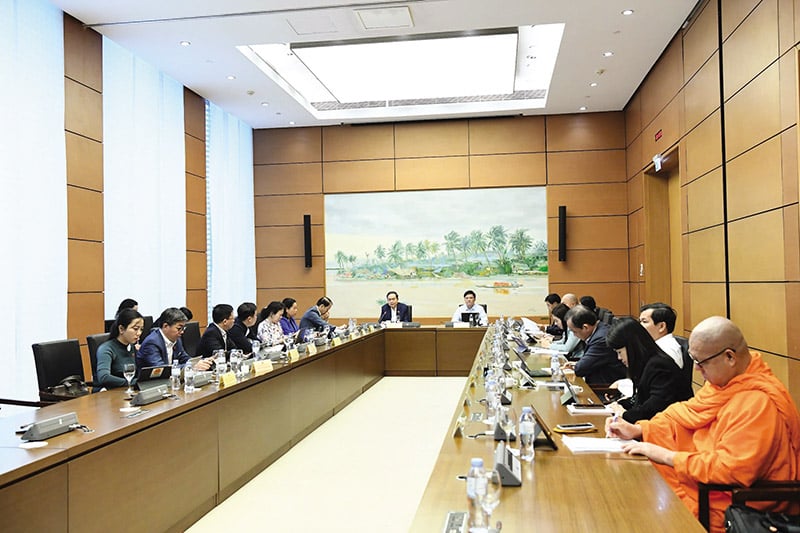 |
| Delegates of Group 11 discussed the Draft Law amending and supplementing a number of articles of the Law on Public Debt Management. Photo: PT |
Clarify the powers of the Government, the Prime Minister and the Ministry of Finance
The above information was given by Minister of Finance Nguyen Van Thang when the National Assembly discussed in groups the Draft Law amending and supplementing a number of articles of the Law on Public Debt Management (Draft) on November 3.
Authorized by the Prime Minister to submit this draft law to the National Assembly, the Minister of Finance said that the Draft amends and supplements the contents of 23/63 articles of the Law on Public Debt Management, including amending and supplementing 17/63 articles, abolishing some regulations in 5 articles and adding new regulations in 5 articles.
One of the contents that has been focused on amendments is to empower the Prime Minister and the Ministry of Finance in some tasks related to debt management, and to increase the initiative and self-responsibility of local authorities in deciding and using the budget. Accordingly, amendments and supplements are made to more clearly define the tasks and powers of the President, the Government, the Prime Minister and the Ministry of Finance.
The draft also amends and supplements regulations to remove obstacles in foreign loan negotiations, expand the group of subjects that can access foreign loans from the Government, and strengthen regulations on public debt information and data disclosure.
In addition, the Draft amends, supplements and stipulates more clearly the principles of allocation and use of ODA loans and foreign preferential loans, adds a new point assigning the Government to regulate the allocation and re-lending rates in accordance with the socio-economic situation of each period, and strengthens the monitoring mechanism...
The contents proposed by the Government basically received the approval of the review body, the National Assembly's Economic and Financial Committee.
Discussing in groups, many delegates shared the same opinion that the Draft has been prepared quite elaborately and comprehensively, cutting many administrative procedures, creating favorable conditions for businesses and people, promoting socio-economic development in new conditions.
According to delegate Nguyen Manh Hung (Can Tho), in recent times, the effectiveness of ODA loans has not been as expected, especially the disbursement is very slow and the volume is limited. Therefore, the delegate highly appreciated the Ministry of Finance's proposal to amend this content in the direction of minimizing administrative procedures, resolving problems and promoting disbursement progress. At the same time, expanding the re-lending subjects as well as the allocation from ODA loan sources to make the implementation more effective and more suitable for the borrowing subjects.
To accelerate implementation, delegate Hung suggested considering stronger decentralization in the direction that the Prime Minister only approves the annual borrowing plan, and the Ministry of Finance will approve specific loan proposals.
Regarding regulations on subsidiaries of 100% state-owned enterprises, delegates proposed regulations in the direction of self-implementing investment procedures, proposing and negotiating ODA, without having to go through intermediaries.
Regarding this content, the Draft is stipulating: "Ministries, central agencies, provincial People's Committees, enterprises with 100% charter capital held by the State, and subsidiaries of enterprises with 100% charter capital held by the State shall submit proposals for ODA loans and foreign preferential loans to the Ministry of Finance".
During the review, the National Assembly's Economic and Financial Committee did not agree, because it believed that foreign debt management should be linked to the responsibility of the parent company, which is the agency that signs the loan contract and repays the loan.
Need to clarify the responsibilities of commercial banks
Speaking at the meeting, National Assembly Chairman Tran Thanh Man commented that public debt management has been relatively good in recent times. Up to now, public debt, foreign debt, and government debt are all lower than the allowed limit.
Regarding the allocation of ODA loans and foreign preferential loans, the Draft supplements the provisions on allocation to the Provincial People's Committee and public service units. The National Assembly Chairman suggested that during the implementation process, the Government must strictly regulate the allocation conditions, allocation rates, and assess the impact on the central budget.
In addition to the Draft Law amending and supplementing a number of articles of the Law on Public Debt Management, the Draft Law amending and supplementing a number of articles of the Laws on Insurance Business, Statistics and Price Law have also been submitted to the National Assembly for consideration and approval at the 10th Session.
According to Minister of Finance Nguyen Van Thang, the goal of amending these laws is to promptly remove institutional obstacles, simplify administrative procedures and promote decentralization, shifting from "pre-inspection" to "post-inspection" associated with strengthening inspection and supervision to create favorable conditions for investment and business activities, and unlocking resources for socio-economic development.
Regarding the lending method, the Draft stipulates that commercial banks will re-lend to public service units without bearing credit risks; and re-lend to enterprises to invest in priority investment portfolio projects.
The state is the lending agency that bears part of the credit risk.
According to the National Assembly Chairman, it is necessary to carefully assess the impact, because if lending does not bear credit risks, it can lead to "neglect" of loan appraisal procedures, creating great risks that state agencies must bear.
“Lending is not linked to efficiency, and lending banks lack responsibility in monitoring loans, affecting the ability to repay debt and public debt safety. The most frightening thing is that people borrow this amount but then invest it in something else, and banks lack guidance on inspection and monitoring procedures,” the National Assembly Chairman noted.
The National Assembly Chairman suggested that it is necessary to clarify how the bank's responsibility is regulated in the law in case of default risk. In case the bank has to share a part of the risk, it is necessary to determine the ratio. "There needs to be regulations in the law or the Government needs to guide in a decree," the National Assembly Chairman noted.
Explaining later, Minister of Finance Nguyen Van Thang said that he would study and fully absorb all comments to complete the Draft.
Regarding some issues raised by delegates, the Minister clarified that the Draft opens up regulations to facilitate the proposal of enterprises and subsidiaries of 100% state-owned enterprises. Subsidiaries with the ability to borrow ODA such as those of the Vietnam National Energy Industry Group, mainly very large companies and corporations, are often proactive in their business plans. When they are allowed to propose and take responsibility, the project implementation will be much faster.
However, the Minister also said that it is necessary to further study the responsibilities of parent companies, with clear regulations in the spirit of cutting internal procedures.
He added that in the past, preparing project documents and signing ODA loan agreements often took too much time, taking up half of the agreement time, or even the entire agreement time, causing many projects to be delayed, unfinished, and having to find other sources.
“The Ministry of Finance has been very determined. The Minister has worked directly with the World Bank and major Vietnamese funding organizations to find solutions to speed up project implementation,” Mr. Thang informed.
According to the Minister, a major limitation affecting the effectiveness of ODA loans lies in project preparation. Many localities do not prepare carefully and fully, resulting in having to repay loans.
Therefore, the Draft has fully integrated practical issues and unified focal points to increase the efficiency of capital sources.
Regarding the regulations on loan allocation, the Minister affirmed that the drafting agency will study and review the issues raised by the delegates. According to the Minister, in addition to the policy bank (Vietnam Development Bank), this time the Draft opens up regulations for commercial banks to participate, to create competition and avoid monopoly.
However, the Minister also agreed that such a regulation would have issues related to risks as the delegate mentioned. The drafting agency will study and calculate the level of responsibility and level of risk.
Regarding capital allocation for public service units and localities that do not have budget autonomy, the Minister said that the Government will have a decree detailing the classification of levels and allocation rates appropriate to the locality.
According to the agenda, the Draft Law on amending and supplementing a number of articles of the Law on Public Debt Management will be discussed by the National Assembly in the hall on the afternoon of November 18, and approved on the last day of the 10th Session (morning of December 11).
Source: https://baodautu.vn/tang-hieu-qua-su-dung-no-cong-d428589.html








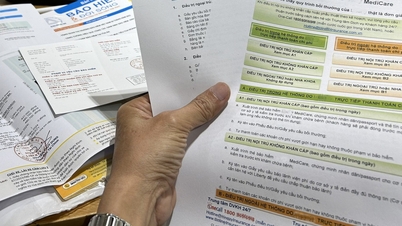



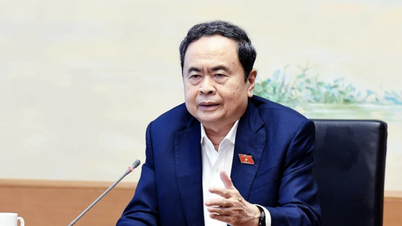
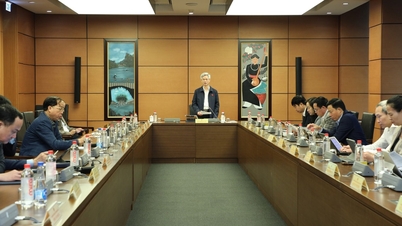
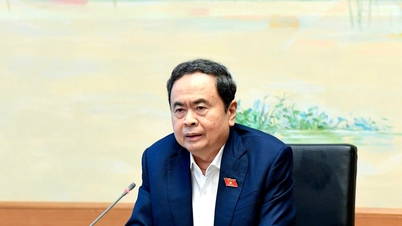
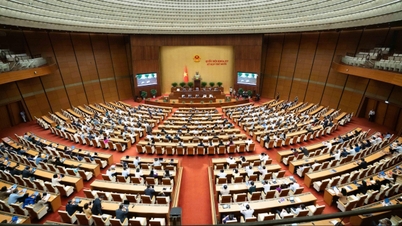



![[Infographic] Vietnam's stock market exceeds 11 million trading accounts](https://vphoto.vietnam.vn/thumb/402x226/vietnam/resource/IMAGE/2025/11/09/1762677474332_chungkhoanhomnay0-17599399693831269195438.jpeg)




























































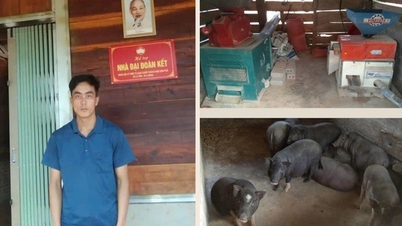












![Dong Nai OCOP transition: [Part 2] Opening new distribution channel](https://vphoto.vietnam.vn/thumb/402x226/vietnam/resource/IMAGE/2025/11/09/1762655780766_4613-anh-1_20240803100041-nongnghiep-154608.jpeg)













Comment (0)